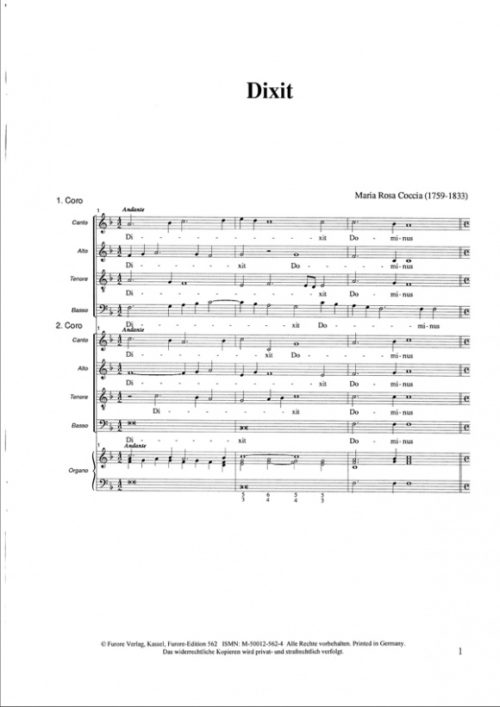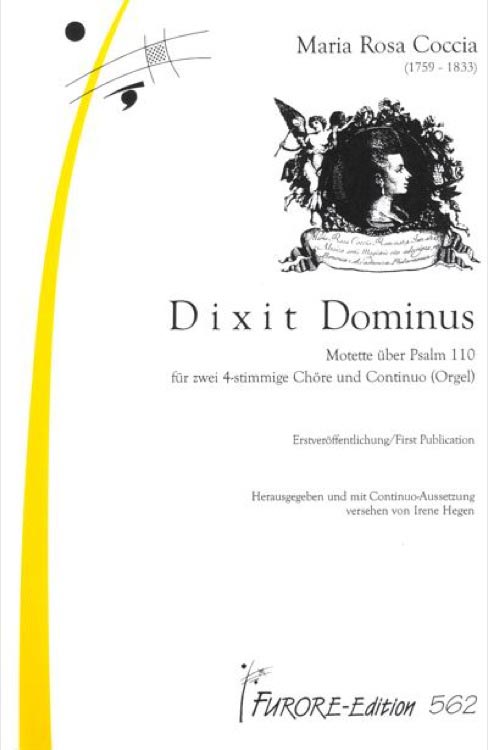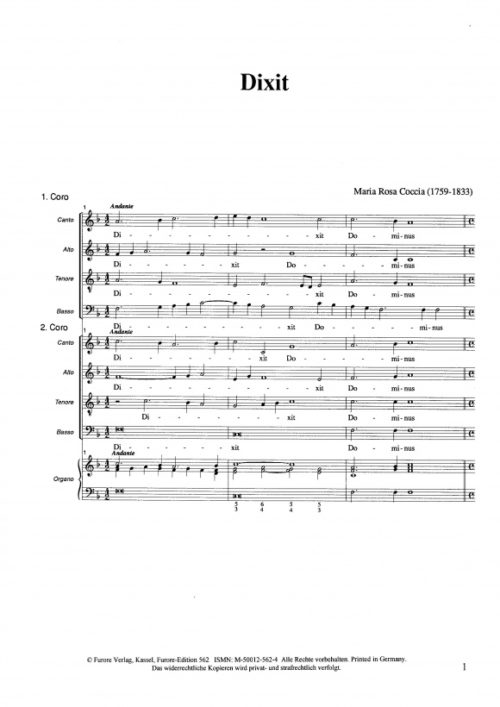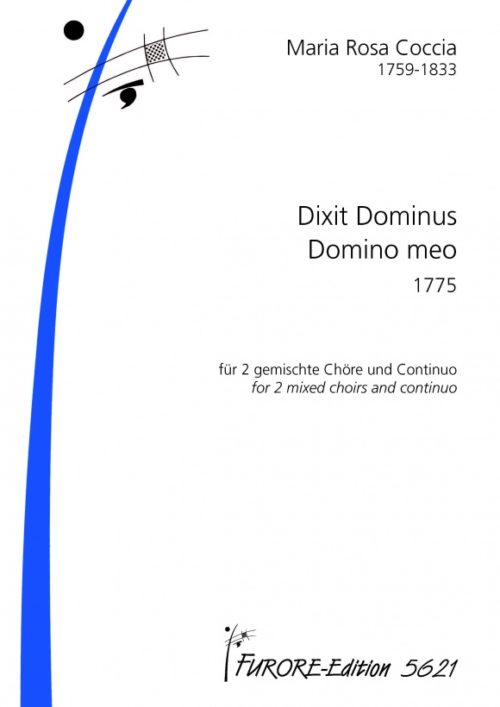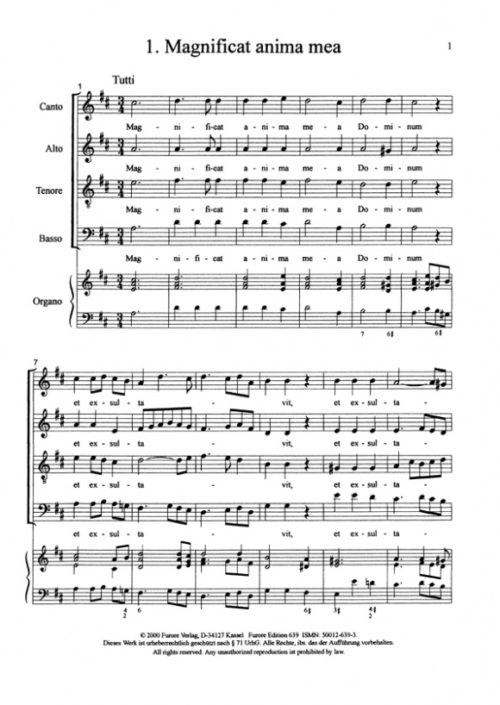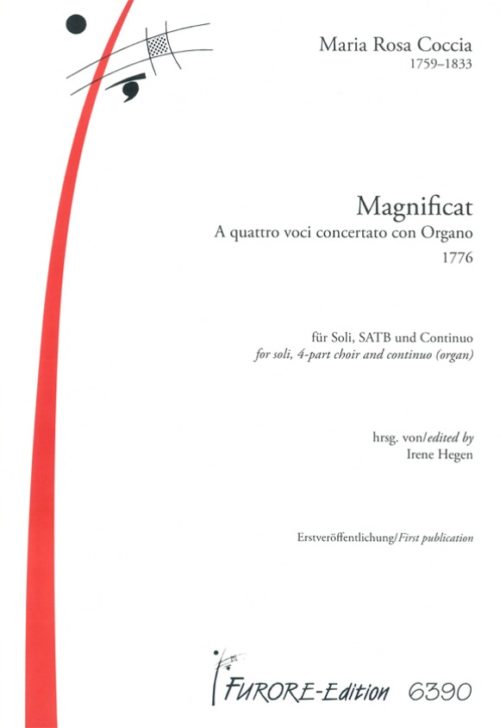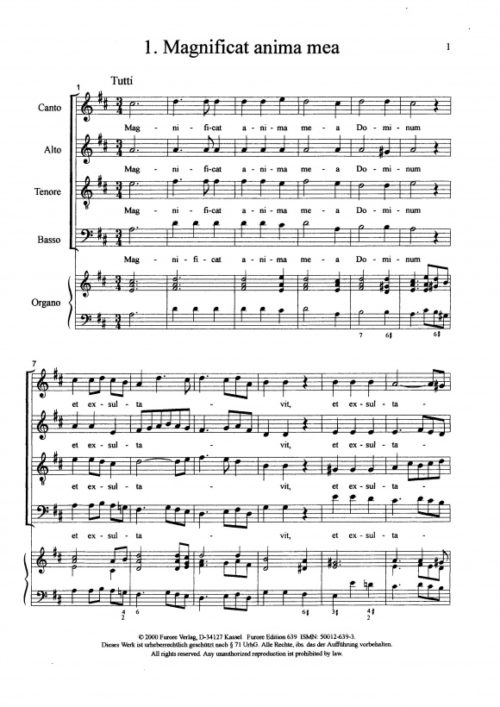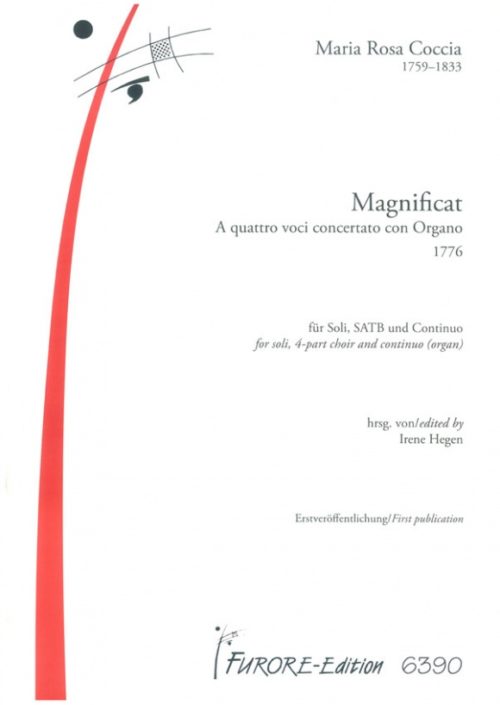Not many women composers of the 18th century composed fugues, but Coccia’s parents, recognizing their daughter’s musical brilliance, hired Sante Pesci, composer and maestro di cappella of the Basilica Liberiana, to teach her counterpoint. He prepared Coccia to take the qualifying exam given at the Accademia di Santa Cecilia, in order to attain the credentials to work for the church as a chapel master. The exam consisted of composing an extemporaneous fugue on a given subject, usually an antiphon or cantus firmus, in front of four judges. Coccia passed the exam in 1774, at age 15, and she became the first woman to achieve the distinction of maestra di cappella of Rome. In addition, Coccia, the sole female examinee, was the only candidate whose exam composition was published.
Rumors soon began to surface that she had only attained this distinction because she was a woman. These rumors were most likely spread by Francesco Capalti, maestro di cappella of the Cathedral of Narni, who eventually published his objections in 1781, as the Critica dell’esame fatto dalla signora Maria Rosa Coccia. This created a great deal of controversy, and many prominent people wrote letters in her defense, such as the Italian poet and librettist, Pietro Metastasio, and the famous castrato, Farinelli.
Coccia was admitted into the prestigious Accademia Filarmonica di Bologna in spite of the brouhaha, and was only the second woman to attain this mark of achievement. Coccia continued to compose both secular and sacred music until 1783. The final fifty years of her life remain an enigma. The last communication we have from her is her 1832 plea – written just one year before her death – to the Accademia di Santa Cecilia seeking a monthly stipend. In this final writing, Coccia stated that she had been a composer and teacher all her life. However, there is no information about any additional compositions, and it is not known if her music was lost or she had simply ceased composing.




